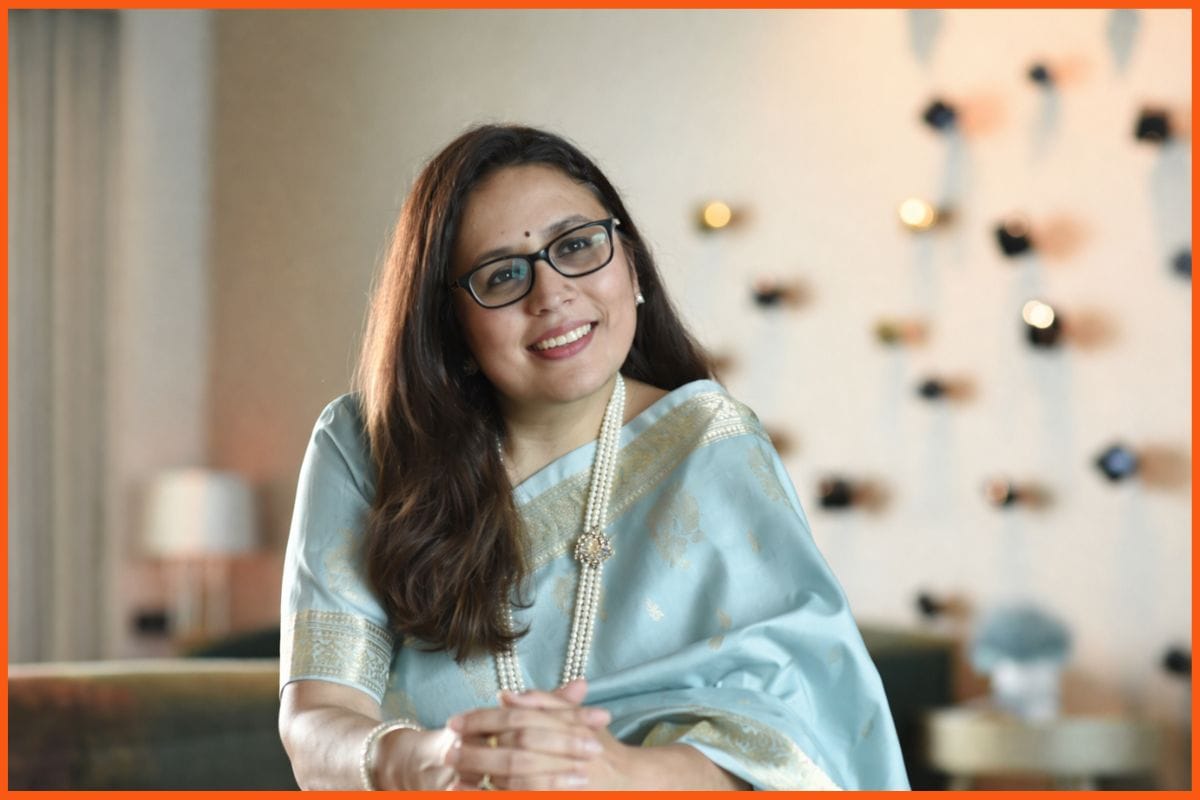Meraki 2025: A Launchpad for the Next Generation of Problem-Solvers

New Delhi [India], April 2: With global challenges mounting—from climate change to resource scarcity, public health crises, and economic disparity—innovative solutions have become non-optional but, in fact, imperative. Meraki 2025, hosted by the Fortune Institute of International Business (FIIB), stands at the intersection of entrepreneurship, sustainability, and social impact, offering a platform for student-led startups to move beyond theoretical ideas and into real-world execution. Now in its 15th year, the initiative has played a critical role in the development of over 50 ventures, many of which have scaled into impactful businesses with tangible results.
According to Radhika Shrivastava, Executive Director at FIIB, “Meraki was incepted from the belief that business education must create real-world impact. We envisioned it as a platform where students live entrepreneurship, don’t just learn it Over the years, Meraki has empowered young innovators to transform bold ideas into viable businesses. At its core, Meraki embodies innovation, sustainability, and social good—principles that will define the future of business.”
While just a competition, Meraki is also a catalyst for change. It nurtures entrepreneurial spirit, ensuring that profitability and sustainability coexist, bringing forth a generation of founders who recognize that business success must also translate into societal progress. The startups that emerge from this competition don’t just pitch ideas; they create solutions that directly address some of the most pressing global issues.
Startups with a Purpose
Unlike conventional business plan competitions, Meraki is purpose-driven, focusing on ventures that align with the United Nations Sustainable Development Goals (SDGs). This ensures that profitability is not the sole metric of success—impact, scalability, and ethical innovation hold equal importance. Its track record includes a wide spectrum of early-stage ventures that have translated technical ingenuity into measurable change, proving that sustainability-driven businesses can thrive in competitive markets.
Among the standout success stories is Picapool, a geo-location-based pooling platform developed by students at IIT Hyderabad. Designed to facilitate shared purchases, rides, and services, Picapool harnesses the power of collaborative consumption to reduce waste, optimize costs, and build smarter, more sustainable urban mobility solutions. The startup has already facilitated over 1,200 pooled rides and fields more than 300 daily requests, demonstrating its potential for scalability and widespread adoption. Recognizing its promise, the Suzuki Innovation Center awarded the startup INR 15 lakh, a crucial investment that will accelerate its development.
Another compelling case is TGP Bioplastics, a Maharashtra-based startup specializing in starch-based compostable plastic alternatives. At a time when the world is grappling with the environmental cost of plastic waste, TGP Bioplastics offers a game-changing solution. By focusing on biodegradable materials that do not compromise on durability, the startup has already secured contracts with John Deere and Mahindra, both of which are integrating TGP’s products into their supply chains. Within just four months, the company has generated INR 53 lakh in revenue, proving that sustainability can be both ethical and profitable.
The success of these startups underscores the fundamental ethos of Meraki—great ideas should not remain ideas; they must be built, tested, and launched into the real world.
A Rigorous Selection Process
Meraki’s selection process is meticulously designed to identify and refine high-potential startups. Ventures are assessed on five core evaluation metrics to ensure they have the potential for long-term success:
- Ideation: The competition prioritizes ideas that are original, scalable, and actionable. This means selecting projects that not only demonstrate creativity but also address urgent challenges in practical ways. Innovations like Jalraaj, a water purification system from the Buddha Institute of Technology, Gorakhpur, and OncoALERT, a low-cost, non-invasive cancer screening test from Tata Institute of Social Sciences, Mumbai, embody this spirit of practical problem-solving.
- Market Analysis: A great idea is only viable if it has a market. Participants are expected to demonstrate a deep understanding of their target audience, competitive landscape, and potential barriers to adoption. For example, Jalraaj is strategically targeting urban, coastal, and rural markets, offering a cost-effective alternative to conventional water purification methods.
- Value Proposition: Each venture must present a clear and compelling case for why its solution is needed. Whether it is OncoALERT’s biomarker-based oral cancer detection tool, which offers a non-invasive alternative to traditional screening, or Picapool’s shared economy model, which enhances accessibility and affordability, a strong value proposition is a prerequisite.
- Financial Viability: The best ideas fail without financial sustainability. Meraki evaluates how well a startup’s business model supports long-term growth, profitability, and investor appeal. Companies like TGP Bioplastics have demonstrated that eco-conscious products can be both scalable and commercially viable, reinforcing the notion that profit and purpose are not mutually exclusive.
- Sustainability: At the core of Meraki is its commitment to long-term social and environmental impact. Startups must prove that they align with sustainability principles and have a model that ensures their solutions remain relevant, ethical, and impactful in the future.
By employing this rigorous selection framework, Meraki ensures that only the most promising, high-impact ventures progress through the competition, receiving mentorship, funding, and industry exposure.
Meraki 2025: A Timely Initiative
The 2025 edition of Meraki arrives at a time when sustainable solutions have never been more critical. Over the years, the competition has helped launch innovations across multiple industries, from renewable energy startups developed at IIM Bangalore to fintech solutions for small-scale farmers pioneered at JBIMS Mumbai. These projects are not mere academic exercises—they are transformative business models that drive meaningful change.
This year, Meraki was bigger than ever, with:
- 100+ student teams from top institutions
- Expanded mentorship programs with seasoned entrepreneurs, investors, and industry leaders
- A sharper focus on real-world execution, ensuring ideas don’t just stay in pitch decks but materialize into working businesses
More than a competition, Meraki serves as a convergence point for emerging entrepreneurs, investors, and policymakers, all of whom share a common goal: building businesses that drive impact, profitability, and long-term sustainability.

Must have tools for startups - Recommended by StartupTalky
- Convert Visitors into Leads- SeizeLead
- Website Builder SquareSpace
- Run your business Smoothly Systeme.io
- Stock Images Shutterstock





